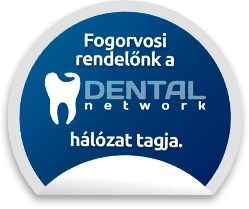Periodontology
Periodontology is a vital branch of dentistry that examines the health of the tooth-supporting systems, including the gums, bones, periodontal ligament, and cementum. This field is essential for ensuring the long-term stability and functionality of teeth, particularly focusing on the diagnosis, treatment, and prevention of periodontal diseases. Periodontal treatments not only address aesthetic concerns but also play a crucial role in reducing severe complications such as tooth loss and various systemic diseases. Effective periodontal therapies are vitally important for maintaining overall oral hygiene and health status, thus contributing to the overall health of the body. Periodontology is not only responsible for the health of the teeth but also serves as a guardian of oral and general health.
When to Visit a Periodontist
A visit to a periodontist becomes necessary when signs of gum and periodontal health issues appear. These symptoms can include persistent gum bleeding, swollen or red gums, receding gums, unpleasant breath, or loosening and shifting teeth. Symptoms can range from mild gingivitis in its early stages to severe periodontitis affecting the bone, which can lead to tooth loss if untreated. A periodontist can also manage complex conditions where the disease has spread to the bone-supporting structures of the teeth. Treatment options include professional tartar removal, cleaning of deeper pockets, and surgical interventions if necessary. Advanced periodontal problems can increase the risk of systemic diseases such as cardiovascular diseases or diabetes, making periodontal examination and treatment crucial for overall health preservation. Timely treatment and regular check-ups are essential to prevent the worsening of problems, so it is recommended to participate in dental screenings several times a year. Preventive measures also include daily thorough oral hygiene, which involves proper brushing techniques, the use of dental floss, and regular use of mouthwashes.
Symptoms of Periodontal Diseases
Periodontal diseases, especially periodontitis, can have severe consequences, including the loosening and loss of teeth. These diseases stem from inflammation caused by bacteria from plaque accumulation in the mouth, which initially affects the gums and then spreads to deeper tissues and bones. Common symptoms include gum bleeding often during brushing or flossing, gum swelling, redness, and pain. If these signs worsen, the teeth may loosen and shift, eventually leading to tooth loss.
Process of Periodontal Treatments
The goal of periodontal treatments is to effectively manage periodontal diseases and prevent further damage. The treatment process generally begins with ultrasonic tartar removal, which eliminates tartar deposits on the teeth and gums. This procedure helps reduce inflammation and prepares the gums for subsequent steps. This is followed by deeper curettage under the gums, where specialized hand tools remove inflamed tissues, infected cementum, and clean the roots of the teeth. This procedure helps reduce pocket depth and improve the condition of the gums. In the less invasive closed curettage, the dentist removes subgingival deposits and inflamed tissues using special tools without making significant incisions in the gums. This method is often sufficient in less advanced cases. However, if the periodontal pockets are deeper, open curettage may be necessary, which provides greater access for the dentist. In this case, an incision is made in the gums to create an open surgical area for thorough cleaning of deeper areas. This allows for root smoothing and, if necessary, the insertion of bone graft materials to help restore bone tissue and support tooth stability. Both curettage procedures are performed under local anesthesia, making them painless for the patient. After the treatment, the gums are repositioned and secured with sutures, ensuring quick and effective healing.
Tooth Splinting
Modern approaches in periodontology include tooth splinting, an effective method to stabilize and secure loose teeth, essential for preventing further movement and ultimate tooth loss. During the splinting process, loose teeth are linked into a fixed unit using a thin metal or plastic splint attached to the back of the teeth. This discreet splint ensures that the teeth remain stable and their movement is minimized. If only a few teeth are affected, the dentist may secure these teeth together with adjacent stable teeth, often using crowns to create a cohesive, stable structure. It's important to note that splinting not only secures loose teeth but also supports the healing process of the gums and bone, especially if applied after periodontal disease treatment. Increased oral hygiene is required during this process, as the spaces between the secured teeth are harder to clean, potentially leading to further plaque buildup.
Prevention of Oral Inflammations
A significant portion of oral inflammations can be prevented with effective oral and dental care, but once inflammation occurs, immediate and targeted treatment is necessary. The type of treatment depends on the severity of the inflammation, often involving antibiotic therapy supplemented with local antiseptic mouthwashes and solutions. Local treatments are crucial as they act directly at the source of inflammation, contributing to faster healing. It is important that patients do not delay their dental visits if they experience persistent pain or notice unusual size, shape, or color changes in the oral cavity. Such symptoms may indicate more serious conditions, such as oral cancer, necessitating prompt medical consultation. Early disease detection and regular screening are vital for successful treatment and complete recovery.
Don't let dental problems affect your quality of life! Call us today and schedule an appointment with our expert periodontists to prevent serious complications and maintain the health of your teeth.
Periodontist in Budapest
Struggling with gum disease or tooth instability? Fehérvári Dental, located in the heart of Budapest’s vibrant 11th district, is home to leading periodontal experts dedicated to preserving your oral health. Our clinic specializes in comprehensive periodontal treatments that tackle everything from gum disease to complex tooth splinting procedures.
Don’t let periodontal issues compromise your health and confidence. Book an appointment today with our skilled periodontists at Fehérvári Dental. Our team uses the latest technologies and treatment methods to ensure you receive the highest standard of care. Whether you're experiencing symptoms of periodontitis or need expert advice on maintaining optimal gum health, Fehérvári Dental is your go-to clinic in Budapest for all periodontal needs.
Take the first step towards a healthier, brighter smile! Contact us now to secure your consultation and discover why we are a trusted periodontist in Budapest. Visit our clinic in the 11th district, where expert care meets compassion.




















